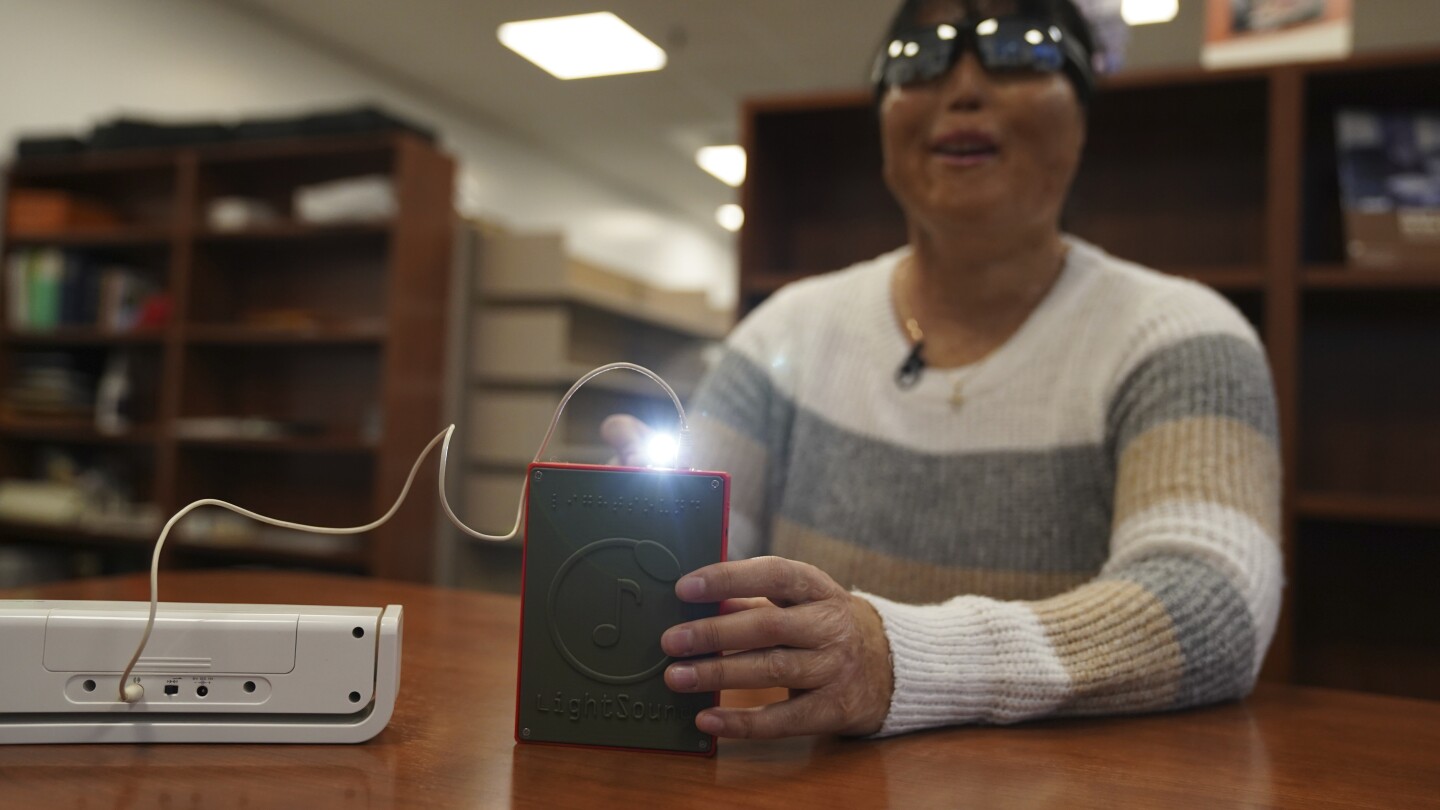While eclipse watchers look to the skies, people who are blind or visually impaired will be able to hear and feel the celestial event.
Sound and touch devices will be available at public gatherings on April 8, when a total solar eclipse crosses North America, the moon blotting out the sun for a few minutes.
“Eclipses are very beautiful things, and everyone should be able to experience it once in their lifetime,” said Yuki Hatch, a high school senior in Austin, Texas.
Hatch is a visually impaired student and a space enthusiast who hopes to one day become a computer scientist for NASA. On eclipse day, she and her classmates at the Texas School for the Blind and Visually Impaired plan to sit outside in the school’s grassy quad and listen to a small device called a LightSound box that translates changing light into sounds.



Judging by the cloud reports, listening to the eclipse may be the only way most Texans get to experience it.